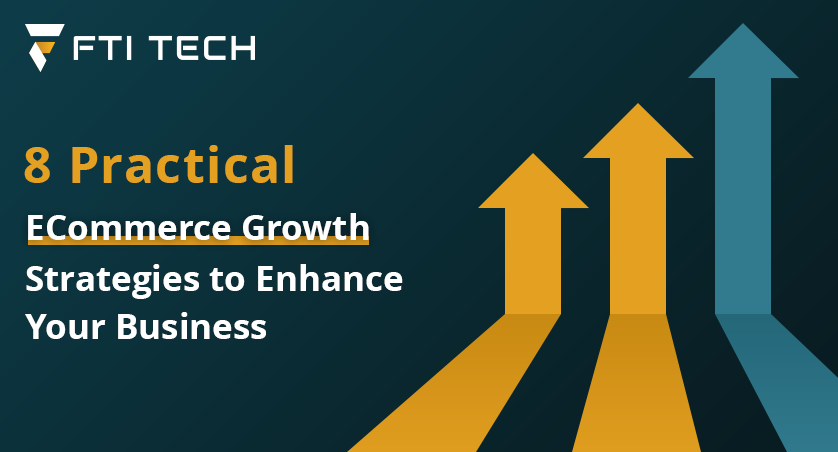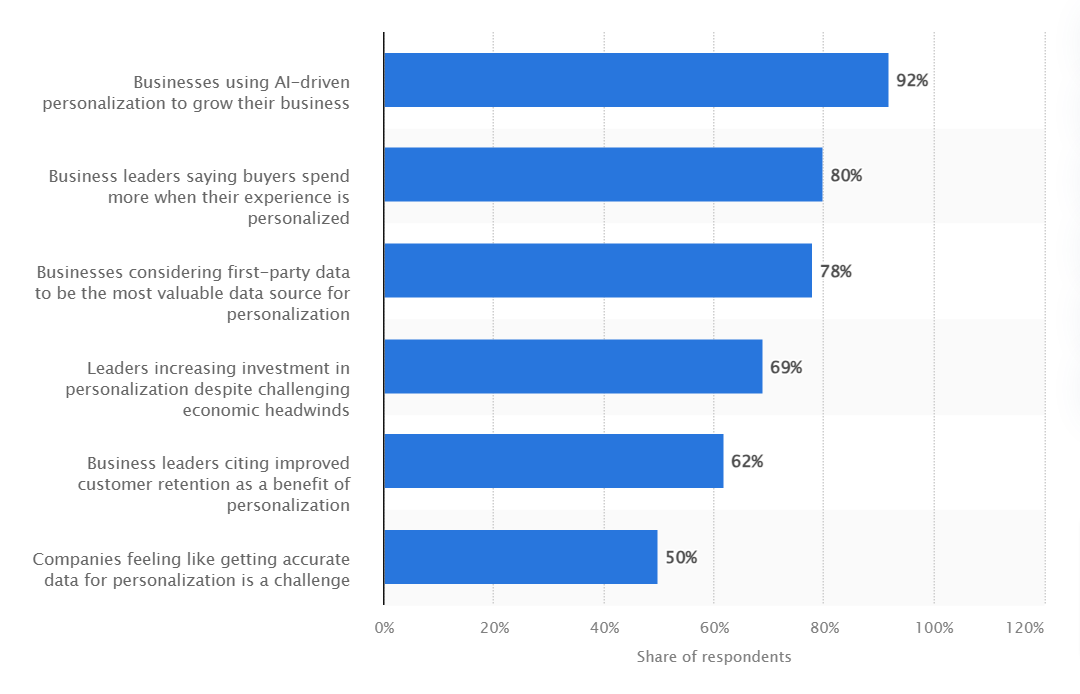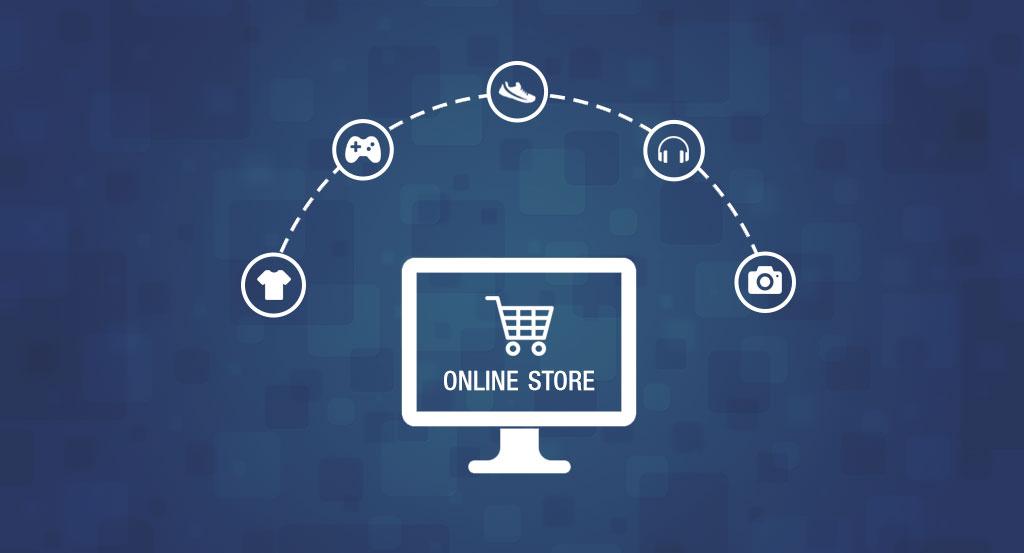8 Practical ECommerce Growth Strategies to Enhance Your Business
An eCommerce growth strategy encompasses businesses’ plans and actions to expand their online presence, increase sales, and improve customer retention. The ultimate goal for your eCommerce growth strategy is to have ready to fulfill all customer needs. This is not restricted to the eCommerce marketplace!
You can plan eCommerce growth strategies tailored to your needs. However, you will need a concerted effort to align growth strategies with business objectives. This article will provide practical growth strategies for your eCommerce business.
But first, you need to understand the need for such strategies!
Importance of growth hacking strategies for eCommerce
ECommerce development is in a competitive space. Lacking a feature or product means your customer will leave your brand. Retaining your existing customers is like breathing (your life depends on it)!
Indeed, the cost of customer acquisition is higher than the cost of retaining customers. This is especially true when 35% of revenue for small eCommerce businesses comes from the top 5% of loyal customers, and retention becomes crucial.
But wait! What’s retention got to do with all this?
Why should you even consider it for growth hacking strategies for eCommerce?
The answer is “churn rates!”
Well-planned growth strategies for your eCommerce business can reduce churn rates and improve retention. Churn rates indicate lost customers and reducing them enhances retention. With effective growth strategies, you can achieve this.
However, an improved retention rate is one of many benefits of effective eCommerce growth strategies. Some others are,
- Growth hacking helps with marketing tactics that reduce customer acquisition costs.
- Improves adaptability and optimization based on market changes
- Enables data-driven decision-making within the organization
- Scaling your business and expansion gets a boost
- Strategic measures allow your eCommerce business to have a competitive edge.
Now that you know why you need an eCommerce growth strategy, it’s time to choose the best one!
8 Top eCommerce Growth Strategies
Going beyond the usual strategies can offer unique value to your eCommerce business. Whether it’s the latest trends, features, or integration of new innovative technologies, your growth strategy needs the right blend.
#1. Optimize your eCommerce website
Ecommerce growth strategies are of no use without an optimized website. Yes, your website is where customers interact and if you don’t optimize it, they will not engage. Without engagement customers will leave your websites increasing the bounce rates.
So, what’s the way out?
It’s simple 3-step process!
Get your web design right!
It’s not about how cool your website looks or feels but how easy it is for your customers to find the product they need. It may seem a sort of cliché optimization but is quite essential.
If you don’t optimize the web design to be easy for navigation and access, customers will simply leave it. So, your eCommerce web design should be responsive, interactive and easy to navigate.
Best practice is to keep it simple. Don’t add too much illustrations and animations. Rather focus on delivering value through your web design to customers.
Get your SEO optimized
Website visibility is where cracking the SEO becomes crucial. If you don’t get the eCommerce SEO right your growth strategies will not work. So, how to get the SEO right? The best way to ensure optimal eCommerce SEO is by analyzing the audience, understanding search intent and plan your keywords.
Based on the planned keywords create content and ensure these content pieces rank on planned keywords. This will increase the visibility of your eCommerce website optimizing growth.
Improve the customer experience
A key component of eCommerce growth strategy should be customer experience. How improved is your customer experience will impact the growth of eCommerce business. You can improve customer support through integration of chatbots to enhance the overall experience. Plus you can use AI to fine-tune chatbot experience for customers.
#2. Use AI to your advantage
If you are not using AI to your advantage in the current era of generative AI, it’s a huge loss! Generative AI is offering capabilities that can improve your eCommerce growth. For example, you can leverage generative AI to deliver smarter product recommendations, customer service automation and more. Simply integrate generative AI models through APIs into your platforms.
Now, customize the models so that each time a customer asks for a specific query through a prompt, the AI model suggests one of your products. Making AI part of your growth hacking strategies can help you improve conversions, customer retention, and sales.
Further, you can also leverage AI for data-driven growth strategies. It will enable effective monitoring of customer behavior, purchasing patterns, and preferences, and you can use monitoring data to fine-tune eCommerce growth strategies.
#3. Have a robust GTM!
GTM, or Go-To-Market strategy, is your ultimate plan to position the eCommerce brand better and showcase a unique value proposition. This includes market research, brand positioning, product strategy, marketing, and sales plans to optimize conversions.
When you develop an eCommerce growth strategy, GTM acts as an anchor, helping you position your business. For example, if you sell sports shoes, GTM will make sure anyone looking for sports shoes lands on your site.
#4. Personalize the shopping experience
Personalization is the go-to growth strategy in the current market if you are in the eCommerce business. According to a survey, 80% of companies believe that customers spend more when the experience they offer is personalized.
While AI-driven personalization is one approach you can consider for your eCommerce growth strategy, there are other approaches. For example, you can introduce advanced technologies like augmented and virtual reality to offer a personalized experience.
A fine example of personalization used for eCommerce growth hacking is Zara. Leading clothing and fashion brand Zara leverages personalized product and landing pages on the website for better conversions.
Similarly, you can design your eCommerce website for personalization, driving higher growth for the business.
#5. Adapt to social media trends
Discussing whether you should be on social media or not is redundant now. Around 5 billion people across the globe is connected with the social media so, you should start it early if you have not done it. But is being on a social media platform enough?
To optimize growth hacking strategies for eCommerce success, you need more than just being on a social media platform. So, what is missing? Adaptability!
Adapt your social media game to the latest trends. For example, short content like reels on Instagram or shorts on YouTube is the new trend. With customers’ attention spans shrinking, you need shorter, on-point, targeted content. Your ecommerce strategy should include short length of content tailored for speicific audience and social media.
#6. Measure your growth strategies
E-commerce growth strategies need effective monitoring. Without effective measurement of how growth strategies perform, you will lose time, money, and effort.
So, what standards do you need to evaluate?
- The website visitors intended to purchase indicates a Sales conversion rates.
- The average order value shows that how much your customers do spend an average amount.
- Customer acquisition cost helps measure total spend on acquiring customers
- The cart abandonment rate shows the overall percentage of customers leaving your eCommerce website without making a purchase.
- Return on ad spend helps measure the revenue generated from money spent advertising your eCommerce business.
You can set up analytics tools like Google Analytics, Shopify analytics, etc. to track these metrics.
#7. Leverage data-driven strategies
Data analytics is crucial for creating eCommerce growth strategies. Data analytics can help track customer behavior if you are an eCommerce business. It can also help fine-tune growth strategies and optimize conversions.
What can you track with data analytic tools?
You can track,
- What do customers buy?
- How did they buy it?
- From where do they buy it?
- What are buying preferences?
- What mode of payment do customers use?
- Where did they get an ideal about the product or service?
Such data will help you improve your product or service catering to unique customer needs. Further, you can design the growth strategy for your eCommerce business based on specific insights that data analytic tools offer.
#8. Execute Effective Email Marketing Strategy
One of the most significant challenges for e-commerce businesses is to retarget your customers who leave the site without purchasing. You should check higher cart abandonment rates.
So, can email marketing help?
Definitely! Email marketing reduces cart abandonment rates, retargets customers, and brings new customers. However, you will need a data analysis of which customers to target, how to target and what to offer.
You can follow below process:
- Extract customer data from your eCommerce website
- Do detailed data analysis
- Categorize audience and get their email information.
- Now formulate email content strategy to engage target audience
- Generate unique content to send emails
- Send follow up emails and analyze key metrics
- Repeat the cycle until you see some growth.
Wrapping Up
In today’s saturated market of startups and enterprises, developing a growth strategy for an eCommerce business has become necessary. Without an effective strategy, your eCommerce business may lose customers and spend more without ROI. You can design growth strategies to convert better from personalization, AI-based integrations, and adaptive social media campaigns.
This can improve sales and boost eCommerce growth. However, which strategy to choose needs A/B testing. You can test each strategy by measuring the eCommerce metrics and ensuring optimal results.
Connect with FTI Tech now to supercharge your eCommerce growth and innovation!





